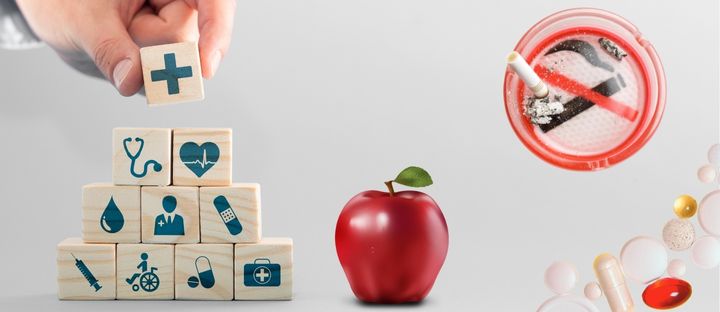“An apple a day keeps the doctor away” is a popular aphorism, but do you really believe an apple is all it takes to stay healthy? October is Health Literacy Month, a time to recognize the importance of promoting health literacy as a tool of public health and health equity.
Health literacy is a social determinant of health and essential to advancing health equity. The “Healthy People 2030” initiative of the U.S. Department of Health and Human Services defines health literacy as an issue of both “Personal” and “Organizational” relevance:
“Personal health literacy is the degree to which individuals have the ability to find, understand, and use information and services to inform health-related decisions and actions for themselves and others.”
“Organizational health literacy is the degree to which organizations equitably enable individuals to find, understand, and use information and services to inform health-related decisions and actions for themselves and others.”
Research has established links between low health literacy, poor medical outcomes, and high rates of hospitalizations. An apple a day will not prevent you from coming down with the flu or lessen how sick you feel if you get it. That’s what a flu shot is for and why public health departments undertake education campaigns urging people to get their annual flu vaccination. In fact, poor health literacy – both individual and organizational – is estimated to cost the U.S. economy more than $200 billion a year.
Many racial and ethnic minorities and non-native speakers of English often have low proficiency in health literacy, reflecting systemic and structural racism and years of disinvestment in community resources, including public health. The NYC Health Department’s Community-Based Initiatives for Health Literacy and Action Project (CIHLA) (funded by HHS’ Office of Minority Health) aims to address this head-on by increasing the health literacy of Black, Indigenous, People of Color in four NYC zip codes that have been disproportionately impacted by COVID-19.
For the CHILA project, FPHNYC is assisting the Health Department in partnering with community and faith-based organizations that are trusted by the communities they serve. In addition to disseminating health literacy messaging related to the COVID-19 pandemic, the goal is to expand these organizations’ capacity to provide ongoing health information and supportive services that transcend a specific disease.
This is just one example of how FPHNYC and the Health Department apply a health equity lens, including a consideration of health literacy, to the design and implementation of many public health initiatives and public outreach campaigns. FPHNYC also collaborated with The Health Department on the “Reimagining Public Health for NYC” webinar series. The five videos in the series feature community leaders and Health Department subject area experts in a discussion about the intersection of public health, racial justice, and equity and their impact on individual and community health outcomes.
FPHNYC and the Health Department apply a health equity lens, including a consideration of health literacy, to the design and implementation of many public health initiatives and public outreach campaigns.
Similarly, to address narratives that perpetuate racism and inequality and have long influenced organizational health literacy, FPHNYC helped the Open Society Foundations and the Health Department facilitate a two-day convening to explore, document, and mobilize strategies for narrative change. By using language that avoids bias and stigmatization, health providers, clinicians, and public health professionals can more effectively communicate with diverse audiences and reduce health literacy-related barriers that keep many communities from fully utilizing information important to their health and wellbeing.
To learn more about health literacy, visit the CDC’s website which offers training modules for health professionals and consumers. The Institute for Healthcare Advancement also provides resources and toolkits designed to help health professionals integrate health literacy into their professional practice and development.

